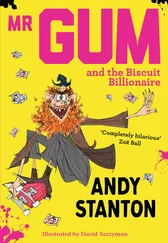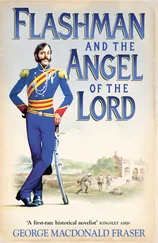In the months that followed, Uncle Chaim became steadily more silent, more reclusive, more closed-off from everything that did not directly involve the current portrait of the blue angel. By autumn, he was no longer meeting Jules for lunch at the Ukrainian restaurant; he could rarely be induced to appear at his own openings, or anyone else's; he frequently spent the night at his studio, sleeping briefly in his chair, when he slept at all. It had been understood between Uncle Chaim and me since I was three that I had the run of the place at any time; and while it was still true, I felt far less comfortable there than I was accustomed, and left it more and more to him and the strange lady with the wings.
When an exasperated — and increasingly frightened — Aunt Rifke would challenge him, "You've turned into Red Skelton, painting nothing but clowns on velvet — Margaret Keane, all those big-eyed war orphans," he only shrugged and replied, when he even bothered to respond, "You were the one who told me I could paint an angel. Change your mind?"
Whatever she truly thought, it was not in Aunt Rifke to say such a thing to him directly. Her only recourse was to mumble something like, "Even Leonardo gave up on drawing cats," or "You've done the best anybody could ever do — let it go now, let her go." Her own theory, differing somewhat from Jules's, was that it was as much Uncle Chaim's obsession as his model's possible madness that was holding the angel to earth. "Like Ella and Sam," she said to me, referring to the perpetually quarrelling parents of my favorite cousin Arthur. "Locked together, like some kind of punishment machine. Thirty years they hate each other, cats and dogs, but they're so scared of being alone, if one of them died—" she snapped her fingers—"the other one would be gone in a week. Like that. Okay, so not exactly like that, but like that." Aunt Rifke wasn't getting a lot of sleep either just then.
She confessed to me — it astonishes me to this day — that she prayed more than once herself, during the worst times. Even in my family, which still runs to atheists, agnostics and cranky anarchists, Aunt Rifke's unbelief was regarded as the standard by which all other blasphemy had to be judged, and set against which it invariably paled. The idea of a prayer from her lips was, on the one hand, fascinating — how would Aunt Rifke conceivably address a Supreme Being? — and more than a little alarming as well. Supplication was not in her vocabulary, let alone her repertoire. Command was.
I didn't ask her what she had prayed for. I did ask, trying to make her laugh, if she had commenced by saying, "To Whom it may concern . . . " She slapped my hand lightly. "Don't talk fresh, just because you're in fifth grade, sixth grade, whatever. Of course I didn't say that, an old Socialist Worker like me. I started off like you'd talk to some kid's mother on the phone, I said, 'It's time for your little girl to go home, we're going to be having dinner. You better call her in now, it's getting dark.' Like that, polite. But not fancy."
"And you got an answer?" Her face clouded, but she made no reply. "You didn't get an answer? Bad connection?" I honestly wasn't being fresh: this was my story too, somehow, all the way back, from the beginning, and I had to know where we were in it. "Come on , Aunt Rifke."
"I got an answer." The words came slowly, and cut off abruptly, though she seemed to want to say something more. Instead, she got up and went to the stove, all my aunts' traditional querencia in times of emotional stress. Without turning her head, she said in a curiously dull tone, " You go home now. Your mother'll yell at me."
My mother worried about my grades and my taste in friends, not about me; but I had never seen Aunt Rifke quite like this, and I knew better than to push her any further. So I went on home.
From that day, however, I made a new point of stopping by the studio literally every day — except Shabbos, naturally — even if only for a few minutes, just to let Uncle Chaim know that someone besides Aunt Rifke was concerned about him. Of course, obviously, a whole lot of other people would have been, from family to gallery owners to friends like Jules and Ruthie; but I was ten years old, and feeling like my uncle's only guardian, and a private detective to boot. A guardian against what? An angel? Detecting what? A portrait? I couldn't have said for a minute, but a ten-year-old boy with a sense of mission definitely qualifies as a dangerous flying object.
Uncle Chaim didn't talk to me anymore while he was working, and I really missed that. To this day, almost everything I know about painting — about being a painter, every day, all day — I learned from him, grumbled out of the side of his mouth as he sized a canvas, touched up a troublesome corner, or stood back, scratching his head, to reconsider a composition or a subject's expression, or simply to study the stoop of a shadow. Now he worked in bleak near-total silence; and since the blue angel never spoke unless addressed directly, the studio had become a far less inviting place than my three-year-old self had found it. Yet I felt that Uncle Chaim still liked having me there, even if he didn't say anything, so I kept going, but it was an effort some days, mission or no mission.
His only conversation was with the angel — Uncle Chaim always chatted with his models; paradoxically, he felt that it helped them to concentrate — and while I honestly wasn't trying to eavesdrop (except sometimes), I couldn't help overhearing their talk. Uncle Chaim would ask the angel to lift a wing slightly, or to alter her stance somewhat: as I've said, sitting remained uncomfortable and unnatural for her, but she had finally been able to manage a sort of semi-recumbent posture, which made her look curiously vulnerable, almost like a tired child after an adult party, playing at being her mother, with the grownups all asleep upstairs. I can close my eyes today and see her so.
One winter afternoon, having come tired, and stayed late, I was half-asleep on a padded rocker in a far corner when I heard Uncle Chaim saying, "You ever think that maybe we might both be dead, you and me?"
"We angels do not die," the blue angel responded. "It is not in us to die."
"I told you, lift your chin," Uncle Chaim grunted. "Well, it's built into us, believe me, it's mostly what we do from day one." He looked up at her from the easel. "But I'm trying to get you into a painting, and I'll never be able to do it, but it doesn't matter, got to keep trying. The head a little bit to the left — no, that's too much, I said a little. " He put down his brush and walked over to the angel, taking her chin in his hand. He said, "And you . . . whatever you're after, you're not going to get that right, either, are you? So it's like we're stuck here together — and if we were dead, maybe this is hell. Would we know? You ever think about things like that?"
"No." The angel said nothing further for a long time, and I was dozing off again when I heard her speak. "You would not speak so lightly of hell if you had seen it. I have seen it. It is not what you think."
" Nu? " Uncle Chaim's voice could raise an eyebrow itself. "So what's it like?"
" Cold. " The words were almost inaudible. "So cold . . . so lonely . . . so empty. God is not there . . . no one is there. No one, no one, no one . . . no one . . . "
It was that voice, that other voice that I had heard once before, and I have never again been as frightened as I was by the murmuring terror in her words. I actually grabbed my books and got up to leave, already framing some sort of gotta-go to Uncle Chaim, but just then Aunt Rifke walked into the studio for the first time, with Rabbi Shulevitz trailing behind her, so I stayed where I was. I don't know a thing about ten-year-olds today; but in those times one of the major functions of adults was to supply drama and mystery to our lives, and we took such things where we found them.
Читать дальше











